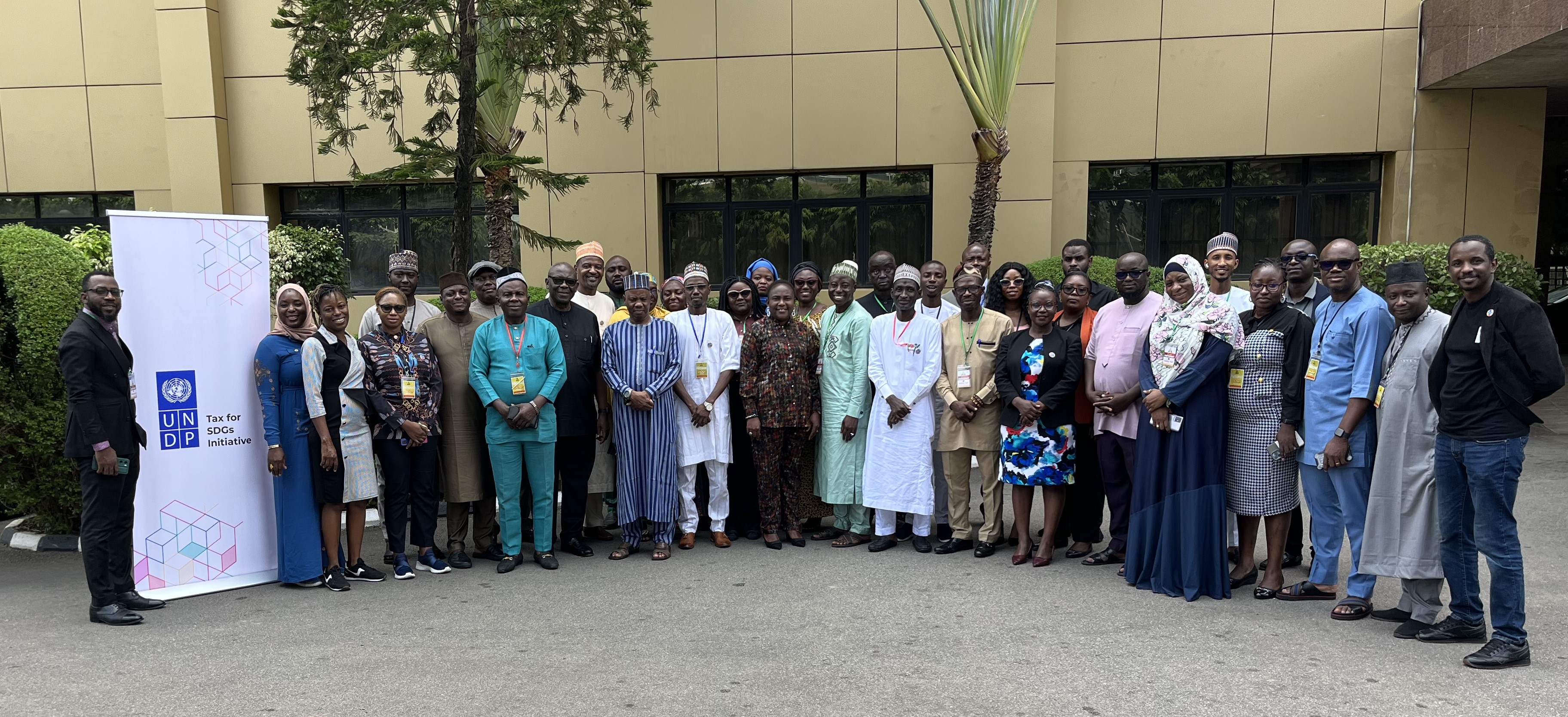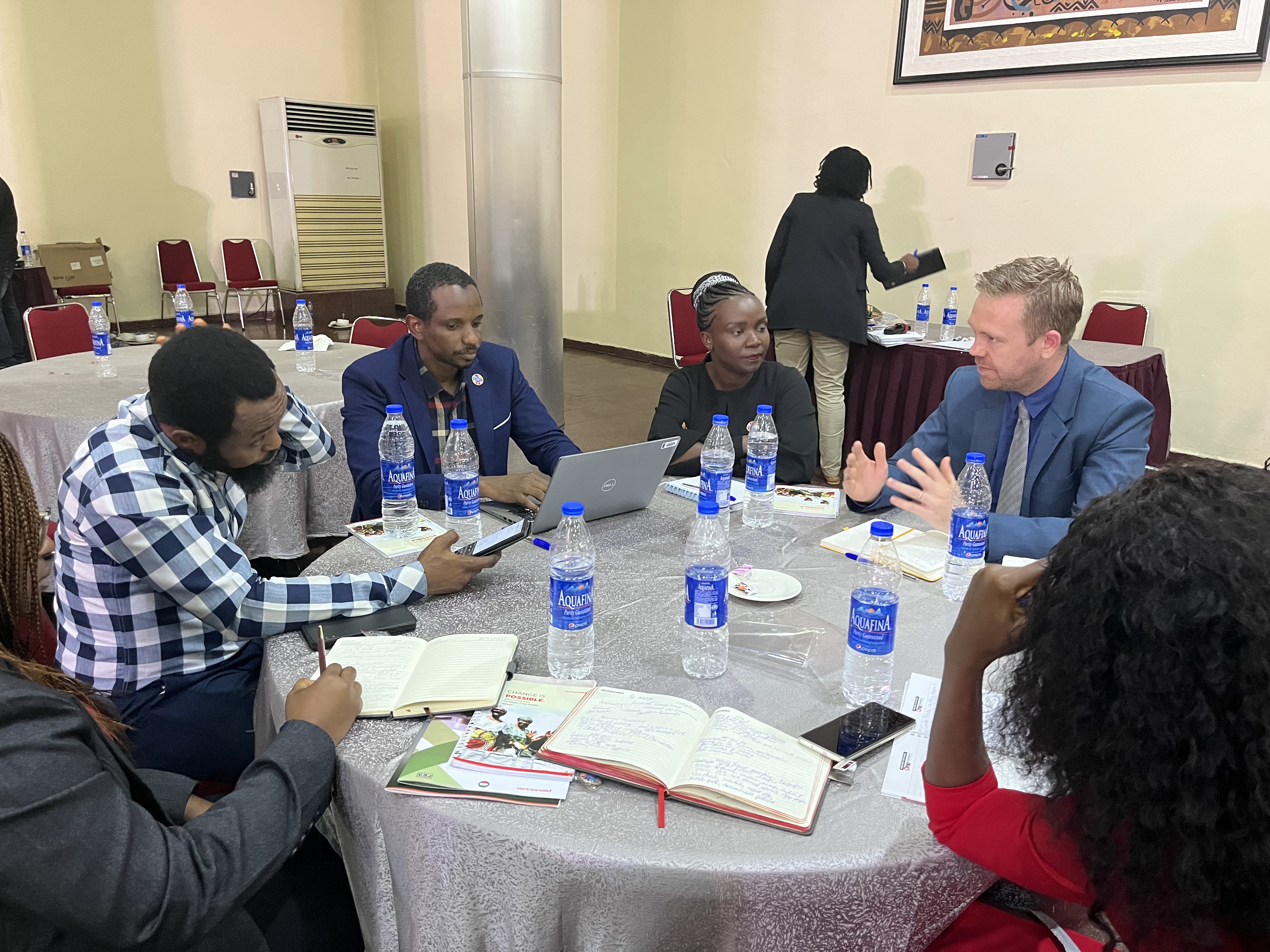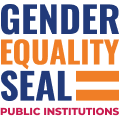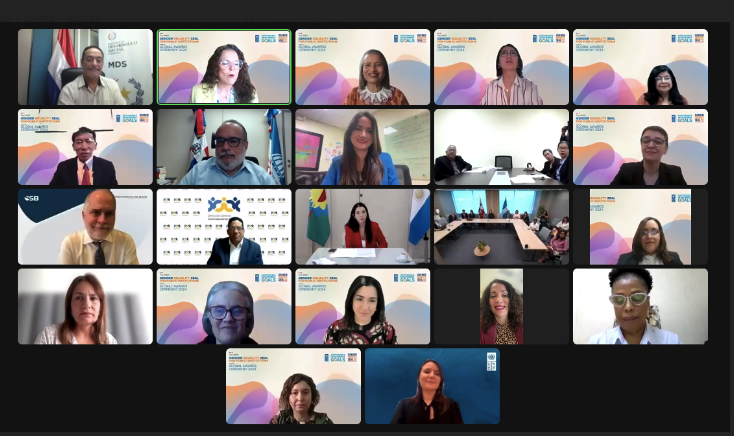A team of experts from UNDP’s Tax for SDGs Initiative and the Gender Team conducted a hybrid mission to Nigeria from 24-28 July to explore the alignment of Nigeria´s tax system with the SDGs, with a focus on Sustainable Development Goal 5 (SDG 5) on gender equality and Sustainable Development Goal 17.1 (SDG 17.1) on domestic resource mobilization. The mission included workshops and meetings in the capital Abuja that brought together approximately 40 public officers from the Federal Ministry of Finance, Budget and National Planning (FoFBNP), the Federal Inland Revenue Service, sub-national revenue administrations and the Federal Ministry of Women Affairs and Social Development.
Nigeria is one of eight countries currently receiving support under the EQUAONOMICS initiative through UNDP’s Gender Equality and Women’s Empowerment Funding Window, thanks to pooled contributions from the Republic of Korea and Luxembourg. Under this initiative, Nigeria will undertake gender-responsive tax reforms and implement the Gender Equality Seal for Public Institutions in the national tax administration and in two state tax administrations.

During the first part of the mission, public officers from relevant institutions were supported to conduct a self-evaluation of the Nigerian tax system using UNDP’s SDG Taxation Framework, a pilot tool designed to analyze the degree to which national tax systems (policy and administration) are aligned with Agenda 2030. The evaluation against SDG 5 on Gender Equality includes dimensions that cover tax policies and tax administration and identifies current gaps and opportunities to better leverage the tax system to improve gender equality outcomes.
Institutional transformation for gender-responsive and inclusive taxation
Recognizing that institutional transformation towards gender equality is a precondition for inclusive and gender-responsive tax policies and administration, three important tax institutions in Nigeria have expressed their intention to implement the Gender Equality Seal, namely the Federal Internal Revenue Service (national tax administration), Kaduna State Internal Revenue Service and Ondo State Internal Revenue Service.
During the second part of the mission, officers from these three tax administrations, together with the Federal Ministry of Finance, Budget and National Planning and the Ministry of Women Affairs, were trained on the Gender Equality Seal, notably the process, dimensions and benchmarks, followed by an in-depth session on the first step of the Seal process called ENGAGE.
Firm leadership commitment was highlighted as a critical success factor for Seal implementation in addition to establishing in-house gender equality committees with senior representation from all major departments, divisions and functions. Ensuing discussions and group reflections revealed that the tax administration already has some policies in place to promote an enabling working environment for women and men, with provisions for parental leave and anti-discrimination policies (related to Seal dimension 3), whereas much is still needed to better mainstream gender across different functions related to the tax administration’s policy and service delivery mandate.

Participants acknowledged that taxation and gender equality are closely interconnected, often in complicated ways that can be easy to overlook in existing tax laws and when designing new tax policies or taxpayer services. Tax policies can either exacerbate or alleviate gender disparities by affecting women’s economic empowerment and access to opportunities. Gender biases within tax systems, such as differential treatment of income and lack of recognition for unpaid care work, can reinforce traditional gender roles and hinder progress towards equality.
On the flip side, equitable taxation can generate resources for gender-focused programs, like education and healthcare and incentivize women’s participation in the workforce. Fostering gender equality thus requires a careful examination of tax structures and their impact on women’s lives. Indeed, participants agreed that the Gender Equality Seal and SDG Taxation Framework are both useful instruments to initiate these discussions in Nigeria and beyond – and ultimately to progress towards better, fairer and more inclusive tax systems.
Reach out to us if you would like to learn more about the new stream of the Gender Equality Seal for Public Institutions targeting tax administrations and Ministries of Finance.












